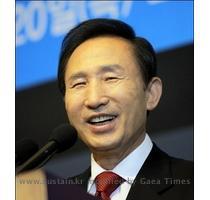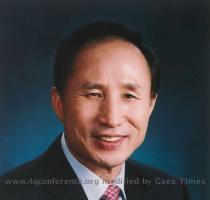SKorea: China will ‘defend no one’ over sinking of SKorean ship, blamed on NKorea
By Kelly Olsen, APFriday, May 28, 2010
SKorea: China will ‘defend no one’ on ship sinking
SEOUL, South Korea — China told South Korea on Friday that it will not defend whoever it determines was responsible for the sinking of a South Korean warship that killed 46 sailors, the South Korean government said.
Chinese Premier Wen Jiabao made the comments after meeting South Korean President Lee Myung-bak amid tensions with North Korea following the March 26 torpedo attack near the disputed sea border on the Korean peninsula.
South Korea, the United States and Japan have condemned North Korea after a multinational investigation blamed Pyongyang for the attack. China, however, took a cautious position.
China will decide its stance after considering international probes and the reactions of all countries, Wen told Lee, according to a briefing by presidential adviser Lee Dong-kwan. “China will defend no one” whatever the outcome may be, Wen also said, according to Lee.
China’s backing would be key to any bid to condemn or sanction North Korea. Beijing, a veto-wielding permanent Security Council member, so far has refrained from committing to Security Council action against Pyongyang, its neighbor and traditional ally.
South Korean President Lee Myung-bak would lay out the case against North Korea during talks with Wen, a South Korean government official said earlier, speaking on condition of anonymity in line with department policy.
Wen and Lee met at the Blue House a day before a three-way summit that will also include Japanese Prime Minister Yukio Hatoyama.
Lee’s spokesman Park Sun-kyu said in a statement that South Korea was “fully concentrating on diplomatic efforts to hold North Korea responsible.” He said the matter would be discussed Friday, at the weekend summit and at a security meeting in Singapore in early June.
A multinational investigation concluded last week that a North Korean submarine fired a torpedo that tore apart and sank the Cheonan in the worst attack on the South Korean military since the Korean War.
North Korea has denied responsibility for the attack, and has warned that retaliation or punishment would mean war.
Tensions have soared since Lee laid out a series of punitive measures and pledged to haul Pyongyang before the U.N. Security Council. The measures include slashing trade with Pyongyang, resuming anti-North Korean propaganda broadcasts across the border and launching large-scale naval exercises off the western coast. U.S.-South Korean military drills are to follow in the coming months.
North Korea threatened Thursday to attack any South Korean ships entering its waters and scrapped an accord meant to prevent naval clashes. The North issued no new threats Friday, but kept up its rhetoric against the South.
Seoul’s countermeasures will “only precipitate its self-destruction as it is nothing but the last-ditch effort of those on the deathbed,” the government-run Minju Joson newspaper said in a commentary carried by the official Korean Central News Agency.
North Korea has carried out a series of attacks on the South since the Korean War ended in a truce in 1953. South Korea has never retaliated militarily.
U.S. Gen. Walter Sharp, the commander of U.N. forces on the peninsula, visited the heavily armed border area Friday to inspect forces and review responsibilities related to the armistice agreement with the commanders, according to a U.N. Command statement.
Senior U.S. officials said Wednesday that China had indicated it was prepared to hold the North accountable for the torpedo attack and could join in some kind of formal Security Council rebuke.
However, asked about Beijing’s stance Thursday, Chinese Foreign Ministry spokesman Ma Zhaoxu simply called the issue “highly complicated” and said China’s position remained unchanged.
Japan has already banned trade with the North and said Friday it will limit the amount of money that can be sent to North Korea without being reported to the government. Tokyo also said it will slash the amount of cash travelers can take into North Korea — an apparent bid to target funds funneled to the North by ethnic Koreans in Japan.
Separately, Hatoyama and President Barack Obama jointly condemned the attack in a phone call and vowed to cooperate with South Korea on Security Council action, the White House said.
Meanwhile, a report by U.N. experts said North Korea is exporting nuclear and ballistic missile technology and using multiple intermediaries, shell companies and overseas criminal networks to circumvent U.N. sanctions.
A panel monitoring the implementation of sanctions against Pyongyang said its research indicates that Pyongyang is involved in banned nuclear and ballistic activities in Iran, Syria and Myanmar, according to the report, obtained late Thursday by The Associated Press.
Associated Press writers Jean H. Lee and Sangwon Yoon in Seoul, Edith M. Lederer at the United Nations, Shino Yuasa in Tokyo and Christopher Bodeen in Beijing contributed to this report.
Tags: Accidents, Asia, Barack Obama, Beijing, China, East Asia, Eastern Europe, Europe, Foreign Policy, Government Regulations, Greater China, Industry Regulation, International Incidents, Japan, Lee Myung-bak, North America, North Korea, Pyongyang, Russia, Seoul, South Korea, Territorial Disputes, Tokyo, Transportation, United States



